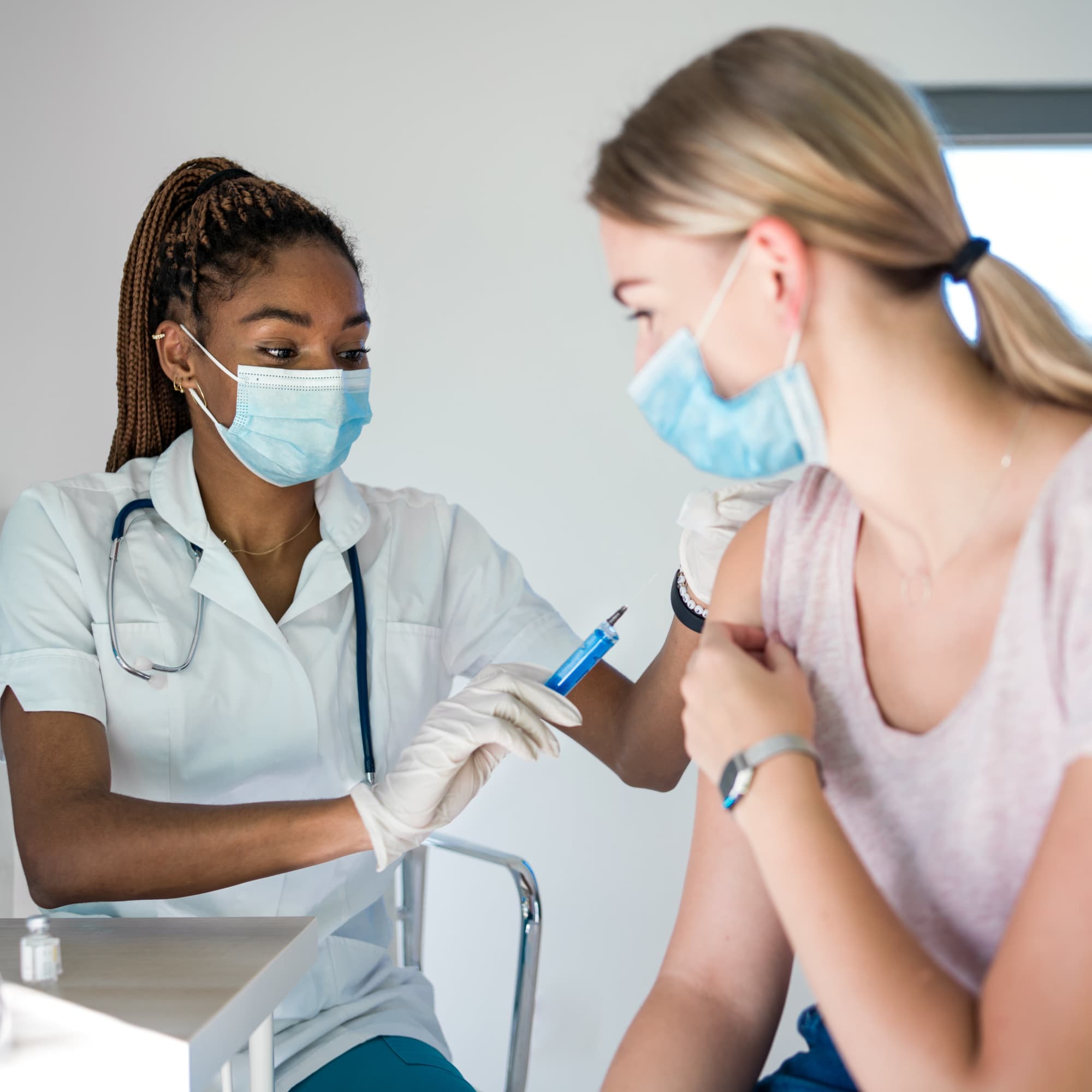
- POPSUGAR Australia
- Fitness
- Experts Explain How Long Symptoms From the COVID-19 Vaccine Typically Last
Experts Explain How Long Symptoms From the COVID-19 Vaccine Typically Last

Like many other vaccines, you may experience side effects after getting the COVID-19 vaccine. Of course, because this particular vaccine is so new, you’re probably eager to know what you can expect after getting vaccinated. For example, how long do the COVID-19 vaccine side effects typically last and, if they do linger or intensify, at what point should you contact your doctor?
First things first: let’s make sure you know what side effects to expect. “The most common symptom is soreness at the vaccination site, following the first or second shot, that comes and goes over the course of a couple of days,” Prabhjot Singh, MD, PhD, chief medical and scientific advisor of CV19 CheckUp, told POPSUGAR, noting that this is common with any vaccination. Dr. Singh added that many people will also experience headache, chills, and muscle and joint pain – and these are all much more common after the second dose. They’re also a sign that the vaccine is working.
“These are positive signs of your body’s immune system revving up,” Dr. Singh explained. “During this period, you can take an over-the-counter medication for your symptoms until they pass.”
How Long Do Side Effects of the COVID-19 Vaccine Last?
Magdalena Cadet, MD, a New York City-based rheumatologist, told POPSUGAR that symptoms typically last between 24 to 48 hours, but some people have reported feeling the side effects for up to 72 hours. Dr. Cadet added that discomfort in the arm may briefly intensify 24 hours after getting the shot, and she recommends resting your arm and avoiding any heavy lifting or activity. Similarly, Dr. Singh said that most mild or moderate symptoms shouldn’t last for longer than a couple days.
Related: My Husband Had a Rash After His First Moderna Vaccine, but Doctors Say It’s Harmless
What Should I Do If the Symptoms Last Longer Than 72 Hours?
If symptoms persist for more than a few days, Dr. Singh recommends contacting your primary care doctor to address your concerns. “At the end of the day, you know your body best and can decide when something feels wrong,” he said. “In general, any symptoms that persist longer than two or three days or majorly impede your quality of life are worth a phone call to your primary care provider to rule out any complications.”
Dr. Cadet noted that, in addition to the duration of the side effects, certain symptoms mean you should get in touch with your doctor right away. “Contact your doctor immediately if symptoms last longer than a few days, if you’re experiencing neurological symptoms, persistent lymph node swelling, any severe allergic symptoms like shortness of breath, or any cardiac or pulmonary symptoms,” Dr. Cadet advised. She added that people with pre-existing conditions like lung or heart disease and immunocompromised patients should be especially vigilant about monitoring symptoms and getting in touch with their providers if anything feels off.
POPSUGAR aims to give you the most accurate and up-to-date information about the coronavirus, but details and recommendations about this pandemic may have changed since publication. For the latest information on COVID-19, please check out resources from the WHO, the CDC, and local public health departments.


